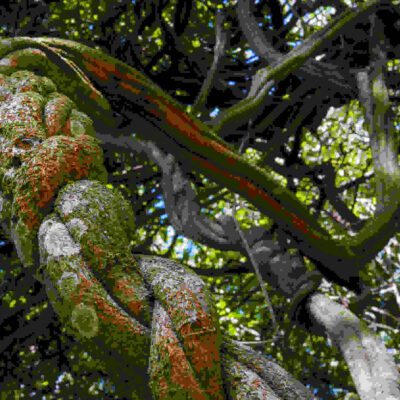Divine Providence is the Heart for an Exodus Story
In life, we all encounter moments that seem beyond belief. When lacking faith, we might relay them up to chance or mere coincidence, marveling at the seeming randomness of it all. But for those who believe, these moments often reveal the unmistakable hand of God. I recently had one such experience that undeniably showcased divine providence.
My eldest son was about to embark on a year-long study program in Tokyo, Japan—a prospect that stirred my maternal worries. The night before his flight, we discussed the importance of connecting with a Chabad house in Tokyo, seeking a support network in a land where language and culture stand worlds apart. That very evening, we had an unexpected visitor—a friend of my husband’s from New York—who insisted on bringing us dinner. To our astonishment, we discovered that his sister runs a Chabad house in none other than Tokyo. What were the chances? Someone we rarely see, who had never before brought us dinner, happened to hold the key to a connection we desperately sought. Hashem Himself had orchestrated that night to provide us with precisely what we needed for my son. In that moment, it became crystal clear to me: God illuminates our path, guiding us through the kindness and connections of others.
Unraveling Divine Intervention In Shemot
In our lives, we witness how God actively shapes events to steer us in certain directions. This very concept of divine intervention shines through in the narrative of parshat Shemot. Through the story of Moses, we perceive a profound truth: human beings are guided by God at every turn. While we exercise our freedom to choose our paths, events align in a manner that leads us toward a greater purpose.
Moses, a child born to a Hebrew slave, is placed in a basket and set adrift in the river by his mother to save his life. Providentially, the Egyptian princess Batya discovers the child and raises him as her own within the palace walls. This same child, named Moses for being drawn out of the water, grows up as a prince and ultimately becomes the instrument for freeing the Israelites from slavery.
At the heart of the Exodus story lies the central theme of divine providence. Miracles aren’t mere happenstance. The Israelites’ redemption was orchestrated by God, who positioned a chosen leader within the palace walls to cultivate a unique perspective. This leader couldn’t be confined by the mindset of a slave; he needed to understand wealth and the belief that anything is possible. Yet, crucially, he also needed the innate understanding and empathy for the Israelites, ingrained in his very DNA.
In Shemot, divine intervention unfolds vividly. Batya defies limitations to rescue the Hebrew baby, extending her hand beyond boundaries. Moses grows up as a prince in Pharaoh’s house, a circumstance orchestrated by divine providence. The burning bush marks a pivotal moment as God calls out to Moses. God uses it as the vehicle to deliver His mission.
For Redemption, Higher Purpose is Vibrant
The Exodus story overflows with instances where God unmistakably protects and liberates the Israelites. These events aren’t confined to history; they echo in our present lives. Consider our recent experience: the surprise that our friend’s sister runs the very Chabad house we sought. It may seem trivial, but even in these seemingly small occurrences, Hashem’s presence is obvious.
There are moments when we, much like the Israelites in Egypt, feel disheartened and confused. In those times, it’s crucial to remind ourselves that everything unfolds for a greater purpose. Hashem will guide us toward our deliverance and elevation. Our role is to hold onto hope, maintain belief, pray, and take that crucial step forward.









Leave a Reply